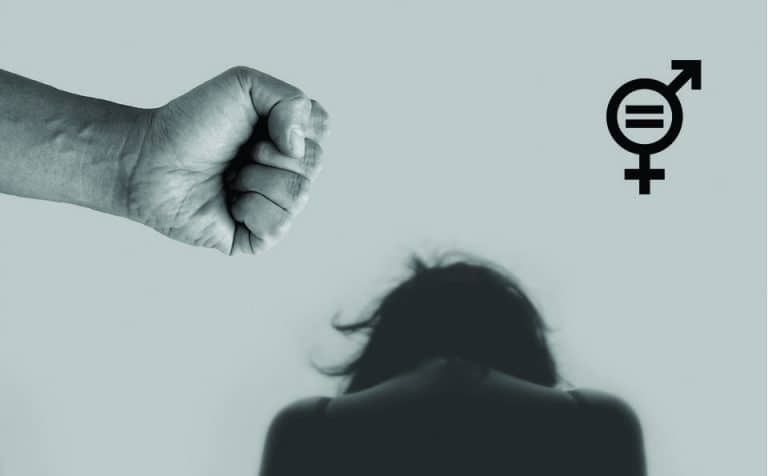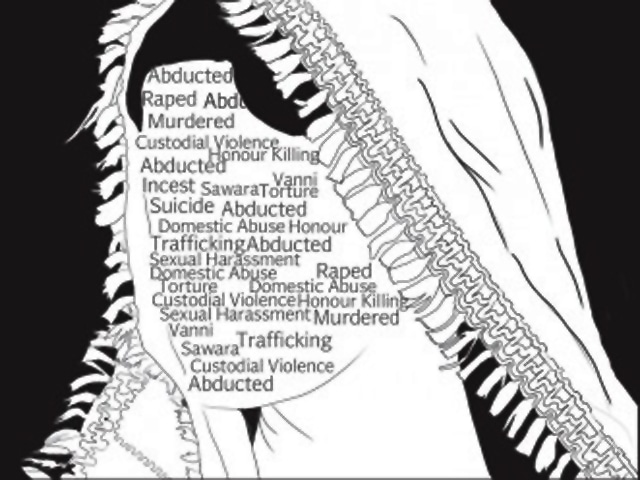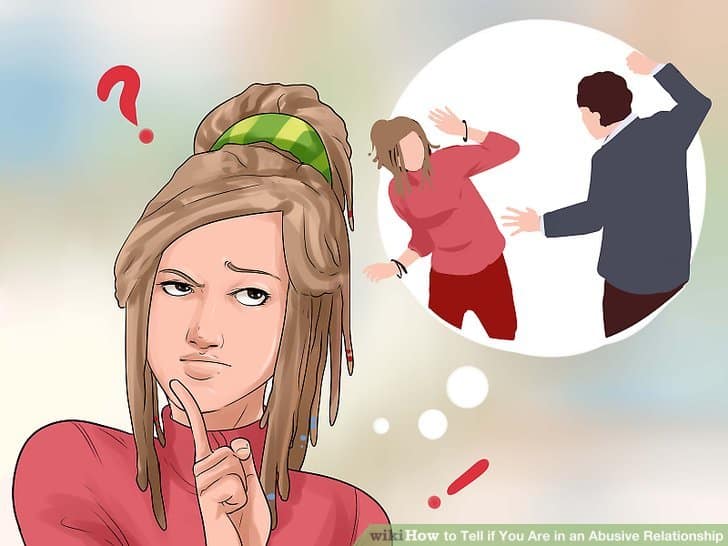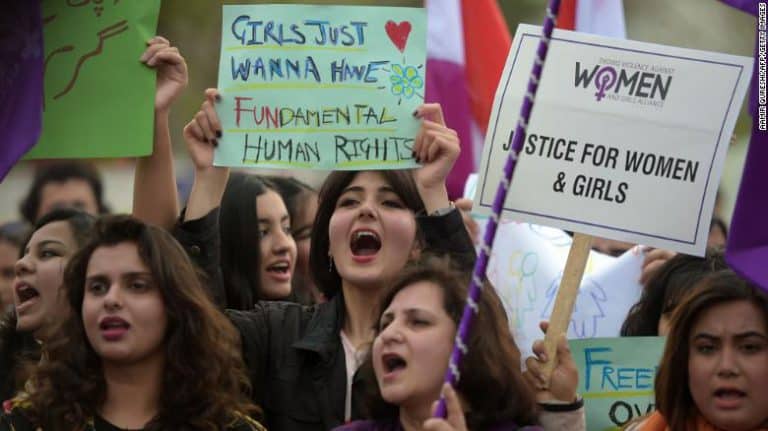
by admin | Oct 25, 2022 | Uncategorized
Violence against women (VAW) is a result of many factors but inequality can be considered as the root cause of this brutal act. We are talking about gender inequality which means men and women are not considered equal and the differences arise from distinctions in experience, exposure, and cultural norms etc. From the feminist perspective, some of the differences are empirically grounded but others are socially constructed by those who wanted to hold the power and control the whole system. Feminists believe that male supremacy and dominance is an illusion created by the sexist minds of male anthropologists.
Abusing women physically or psychologically was not the reason to create gender inequality but it becomes the main cause of gender-based violence.
Violence against women is not limited to Pakistan or underdeveloped countries, it is a global phenomenon having no boundaries of age, education, socioeconomic status and geography. According to the World Health Organization, about 35 per cent of women worldwide have faced physical and/or sexual violence in their lives either from intimate partner or non-partner.
Discrimination and social norms undermine women to get education, income and independence. The dependency of a woman on man is the core reason that she is considered unequal to man and treated like a slave or commodity.
It is considered that the lack of women’s empowerment is a critical form of inequality. Woman empowerment is one the solution to VAW. Empowering them by providing equal opportunities and access to education, decent jobs, health care, knowledge, awareness, representation in economic and political decision-making process and support is very crucial. Because it has been proved by researches that women who hold the degree, job (Economic independency) and awareness are less likely to be hurt by their spouse and even from other men. Gender equality is a necessity for a peaceful, prosperous and sustainable world.
Supporting those girls who encounter violence is vital by making sure that they are getting justice, protection, shelter, counselling, treatment and whatever they need to get out of the trauma and live a better life.
In the past few decades, for women empowerment, the enormous Progress has been made on many important fronts. The situation is far better than the past but there is still much work to be done in this field. In this era even having a major share in global work women face disadvantages in both paid and unpaid jobs. Even after getting the higher education they don’t have a high-rank job. They are not excelling in the business a few of them get a chance to become a senior politician and hold judicial positions.
To put an end to this curse we must focus on changing discriminatory social norms, closing gender gaps on all levels (educational, economic, social). The first and most important step is to collect data. Then we need more energy, struggle and determination to reduce the violence that cut deep into our society so that it is not continued to the next generations.

by admin | Oct 25, 2022 | Uncategorized
No matter how much work is done for gender equality, women are still encountering so many problems including violence. In urban areas of Pakistan, the situation is better than the past but for the rural areas, we cannot say the same. Pakistani women have proved that she is capable of doing anything assigned to them but most women do not even get a chance to prove their worth.
The society has made them believe that they are inferior, less important than boys and have no capacity to do many tasks. Most of the women do not know that they have basic rights and they are an integral part of the society. The difference in gender does not lessen their importance and human rights. They, their decisions and their privacy must be respected and they can do whatever they want to do.
Now the question arises that how can we empower women so that we can put a full stop to gender inequality and violence against women.
The first step is to change the psyche of Pakistani women and convey them they should not undermine themselves. Empowerment is about creating an environment where a woman is free to choose what she wants to do, she knows her rights and knows how to get them, she can comment and suggest about economic, political and cultural issues. Providing them equal opportunities like boys to participate in any segment of life as per their choice. Making a woman socially, politically and economically strong is a sustainable solution to ending gender violence and inequality.
Following are some empowerment techniques that can build self-esteem in women and girls.
- Providing education to women is the best gift to empower them. Educated women can understand their rights, psychology of men, handle people, perform a job by acquiring skills and rely on themselves. Ultimately it broadens their vision and teaches them how to tackle the problems and live a more productive life.
- Awareness regarding their health, reproductive system, childbearing, breastfeeding and hygiene and makes them conscious. It raises their life expectancy and enhances the ability to decide what is right for them and what should they do.
- Economic independence can reduce the level of gender-based violence. Pushing women to acquire skills and contribute to their house, society, country and the world. Teach them to play an active role in their society. Women’s economic empowerment includes women’s ability to participate equally in existing markets; their access to and control over productive resources, access to decent work, control over their own time, lives and bodies; and increased voice, agency and meaningful participation in economic decision-making at all levels from the household to international institutions. Chances are very high that these skilled women will do further work to empower other women. Economic independence develops confidence and self-worth into them which gives them the ability to demand respect and peace in their relationships.
- Awareness about all the laws preventing harmful activities against women and the procedure to access the law is the most important task in empowering women. Government and civil society must show strong commitment, and accelerate actions to increase women’s access to justice that advances women’s equal rights, opportunity and participation. Rule of law helps to minimize violence against women so we must endorse zero tolerance policy about this issue.
- Making sure their participation in the decision-making process at all levels such as household, human development, political, education, job, workplace, pursuing personal interest, cultural, marriage, childbearing and economic, trade and development policies. Empowerment of women will improve their status generally and enable them to actively and effectively participate in key decision-making processes. Increasing their ability to make decisions will boost their confidence. Building social networks and making them socially active enhance their ability to decide rightfully.
- Encouraging them to participate in politics and leadership roles. It does not only raise their confidence but also they can empower other women by inspiring and working on the policies and legislation from the top level.
White Ribbon Pakistan is promoting gender equality, women’s empowerment and their enjoyment of human rights. We believe in making the home and public spaces safer for women and girls, ensuring women’s economic autonomy and security and increasing women’s participation and decision-making powers—in the home, as well as in public life and politics.

by admin | Oct 25, 2022 | Uncategorized
When domestic abuse is discussed a thought came across the mind of people that why these women do not leave their abusive husbands?
Domestic violence is repeating and unending cycle in which you can count physical, psychological, sexual, economic and emotional abuse. If Abuser controls everything and does not give a woman access to health, education, resources and even her parents, it is also included in violence.
Most women never left their abusive husbands, some left their husband after a long time of suffering because of multiple reasons. Many of them go to their parents’ house but just to go back, time and again.
The reasons include the following:
- Believing or hoping that the man will change
- Economic dependency
- For the sake of children (Children and Single Parenthood)
- Poor support system (Lack of intervention) and Social pressure
- Norms and myths, Personal guilt and the concept of personal failure
- Negligence of law enforcement agencies
- Fear of what the partner will do
When domestic violence starts at the beginning of relationship women tell their hearts that the abuser will change with time and they pass a long time hoping the same.
In Pakistani culture, a woman remains economically depended on all her life. This is a common expression that no one except husband will bear the expenditures after marriage. Brothers and family of a woman do not support her normally. After the marriage and kids, the woman starts thinking of her children instead of herself. This is our traditional belief that for a better upbringing a child should know and have both mother and father.
In Pakistan, we have a saying that “Once a woman leaves her mother’s house as a bride, she can only return in a coffin.” After the marriage, no one helps and support the woman so that she can overcome the abusive relationship. Even she always get suggestions to bear the pain as it is considered a tradition. Most of the families consider that if their daughter gets a divorce they will lose their dignity and respect in the society so they choose pain, trauma, abortions, miscarriages, sufferings and even death over their so-called respect.
People continue to believe in pseudo-self-created values but don’t respect woman’s rights as an equal human being even in the 21st century. Norms and myths hold women not to speak up. It is usual, it happens in homes, we fight most with the people whom we love, if a husband stops beating his wife it is considered that he has indulged in some other woman. These norms contribute more to increase domestic violence. It is also considered that women are weak they are nothing without their husband. Now millions of women have no self-esteem and they also consider them wrong and they accept all the pain as their fate.
If a woman takes some courage and gains the support of family members then our systems fail her. She fears to go to the police because they encourage both parties to compromise. Lack of interest, pressure from the man side and negligence of police leads her to step back. The same case is with our judicial system people avoid to take their cases to the court because of the inefficient system. Many of them fear that the person abusing them will harm them after coming back from jail because the state is not doing something tangible
Pakistan needs to adopt an approach of domestic violence cases being registered by the state rather than the family (Sindh police took this surprisingly smart step in a recent case) so the victims aren’t inevitably ‘pardoned’ every time in the name of so-called honour.

by admin | Oct 25, 2022 | Uncategorized
Patriarchy is a system of social organization that institutionalizes male power over women and puts male interests and values at the center of social life. Sylvia Walby explains patriarchy as “a system of interrelated social structures which allow men to exploit women.” This definition recognizes patriarchy as being institutionalized subordination and exploitation of women.
The supporters of patriarchal society justify patriarchy by attributing natural biological differences between men and women. They also focus on the influences that hormones have over biological systems. The ‘male hormone’ testosterone is responsible for masculinizing a man, whereas ‘female hormone’ estrogen feminizes a woman. In short, women are considered inferior to men intellectually and physically. According to this social system women role in society is to reproduce and serve men in the household. On the basis of recent studies and researches, it can be rightly said that there is no correlation between skull capacity and brain weight and intellectual power, yet there is still a constant struggle of gender bias in science.
Some theories also discuss patriarchy through a psychological perspective based on gender differences in psychology which are the differences in mental functions and behaviors of the sexes. Such differences are found in a variety of fields, such as mental health, cognitive abilities, personality and tendency towards aggression. Males on average are more assertive and have higher self-esteem. Females were on average higher than males in extraversion, anxiety, empathizing skills, trust, and, especially, tender-mindedness. Women also reported a more intense and more frequent experience of affect, joy, and love but also experienced more embarrassment, guilt, shame, sadness, anger, fear, and distress
Patriarchy is a multilayered, multifaceted social structure that extends across all levels such as personal, interpersonal, social, institutional, in family, in community and in government etc. The pattern of violence within personal relationships and communities grew over time because patriarchy has developed and changed over time. Virtually in practice, all societies are more or less patriarchal in nature, whereas there is no such evidence found in constitutions and laws governing such societies. The factor of patriarchy has itself integrated with the social, moral, legal, political, religious and economic organization of various cultures.
The process by which children acquire the values, motives, and behaviors viewed as appropriate for males and females within a culture is called gender typing. Children develop gender-based beliefs, largely based on gender stereotypes; which reflected in gender roles later. Children adopt a gender identity early in life and develop gender-role preferences as well.
Patriarchy has an immense impact on the lives of women in every field of life. For instance, in state/government women have less formal power and representation. In the household, they are considered a machine who produce the children and raise them. Moreover, they are more likely to being abused physically, psychologically, emotionally, socially and economically. They have fewer opportunities in professional life and also paid less. They are treated negatively in terms of sexuality. They are more misrepresented and used as a commodity in media and popular culture.
Patriarchy is a social system so, all men do not participate or experience patriarchy in the same way. Patriarchy does not necessarily mean that every man has control over every woman in every context. Various groups, most notably the feminist movement, have led efforts to change aspects of patriarchy that they believe are oppressive or inaccurate.

by admin | Oct 25, 2022 | Uncategorized
From mainstream media to entertainment, portrayal of women as ‘damsels in distress’ is a phenomenon all too common
Aroosa Shaukat
But the battle is far from over. From mainstream news media to entertainment industry, portrayal of women as the usual ‘damsel in distress’ is a phenomenon all too common, says White Ribbon CEO, Omer Aftab. “There has been so much reinforcement of stereotypes altering societal attitudes for so long that it almost always puts the blame on women, even when they are the victims,” he says. A campaigner for women’s rights, Aftab says fighting patriarchy is all the more challenging since it exists in varying forms in different strata of the society.
For rights campaigners, sensitisation of mainstream media has remained a challenge for far too long, says Aftab. Citing instances of news coverage of rape and abuse forcing victims to flee their neighbourhoods and even cities, Aftab says, at times, news coverage has amounted to nothing short of a ‘second assault’ on abuse survivors. And it doesn’t end there. With crime re-enactment shows taking much of primetime spots on news channels, the focus has been on sensationalising crime. “Somewhere in that process, the plot is lost. There is indirect condemnation of the victim instead of the perpetrator,” he says.
In 2013, a media code of ethics was developed by White Ribbon following focused group discussions with journalists across the country, which was endorsed by over 150 journalists at its launch the same year. With vows made to re-evaluate news reporting, rights campaigners felt mainstream journalists made an effort to act responsibly. Aftab notes that in the past five years there has been a noticeable change in how media reports such stories, though the same remains questionable in some quarters. Another problem is the tone set in some talk shows, especially by hosts. “What needs to be understood is the influence these individuals carry. We also need to look at the mindset of the people in media itself, and how that shapes public opinion and attitude,” he says.
Mazaaq Raat, a television talk show aired on a private news channel, which featured Mohsin Abbas, recently started issuing disclaimers following the domestic abuse allegations against the actor-singer. The disclaimer stated that the channel has distanced itself from the actor in the wake of the recent allegations since some episodes were recorded prior to the case, they have content that features Abbas. The channel has said that until the actor clears his name, he will not be part of future episodes of the show. The disclaimer was run recently before and during the airing of the show.
Aftab says some major cases of violence were brought to light after these were taken up on social media. Allegations against Abbas were also initially taken up on social media following her wife’s posts on Facebook and Twitter. “Voices that are being raised through social media are difficult to silence,” says Aftab. However, for campaigners the difficulty is in gauging how media weighs out issues of abuse and social injustice against other mainstream stories. For rights activists, convincing mainstream media to continue to focus on these issues remains difficult. “Unless there is an incident, no one is willing to take up the issue till there is a pressure from social media. Wait for another ten days and see how many in the news media continue to talk about abuse or violence against women.”





